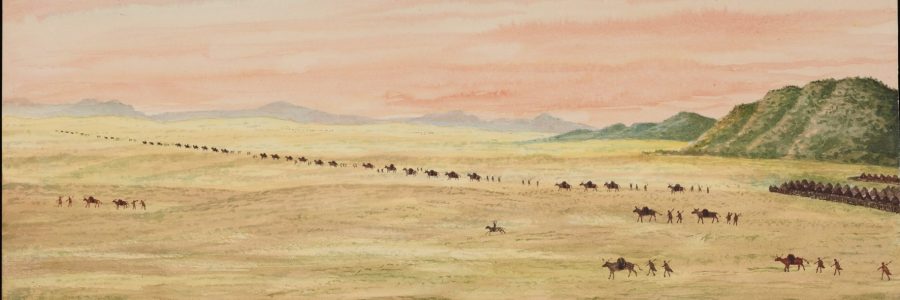
Pamphlets of late nineteenth-century British Colonial Africa
The Royal Commonwealth Society department has added more than 600 pamphlets and periodical articles relating to late nineteenth-century British Colonial Africa to the library’s electronic iDiscover catalogue. Many of these titles are seldom represented in UK repositories, because they were published in Africa or continental Europe, and copies were not acquired by the UK’s legal deposit libraries. The bulk of the works date from the early 1880s to the early 1900s, with examples covering Egypt, Sudan, Ghana, Sierra Leone, Nigeria, Kenya, Uganda, Tanzania, Mauritius and southern Africa. They form a rich resource for the study of a wide range of subjects, which have been illustrated with images from the RCS’s extensive collection of photographs of Africa.
Taken together, the pamphlets and periodical articles document virtually every aspect of Britain’s role in the late nineteenth-century European partition of Africa. They shed light upon the complex combination of political, economic, social and ideological forces within Britain, Europe and Africa, which drove imperial expansion during this period, beginning with the British occupation of Egypt in 1882 and culminating with the South African War of 1889-1902. Major subjects include the Berlin Conference of 1884; imperial rivalries with Germany, France and Portugal leading to incidents such as the Fashoda Crisis of 1898; the Mahdist revolt, Charles Gordon and the Anglo-Egyptian conquest of the Sudan in 1898; expansion in East Africa during the 1890s; and war with the Kingdom of Benin, which was incorporated into the protectorate of Southern Nigeria in 1900.
Given the chronological scope of the works, the two South African Wars (1880-81 and 1899-1902) emerged as the most prominent subject. The RCS Library in London created a comprehensive resource for the study of the second conflict, collecting more than 200 titles featuring its every facet. There is debate over its causes and the part played by empire-builders such as Cecil Rhodes in London, Cape Town and Johannesburg in igniting conflict. The international controversy inspired by the war is illustrated by commentary from French, German, Dutch and American authors, while military operations, including commando raids and the development of concentration camps, were widely reported. The peace negotiations and the inclusion of the Boer republics of the Orange Free State and the Transvaal into the newly created South Africa complete coverage.
Other important themes relate to the theory and practice of colonial government, including discussions of the merits of direct or indirect rule. Authors such as the traveller Mary Kingsley (1862–1900), who died of typhoid while nursing Boer prisoners during the South African War, wrote about African cultures, artistic traditions, languages, and social and legal systems. Slavery and the suppression of the slave trade, particularly in East Africa, and Christian missions and missionary activity also feature widely. Medicine, health and hygiene are represented, reflecting work to combat malaria, yellow fever, sleeping sickness and other illnesses. Many authors discuss agriculture, economic botany and the important gold and diamond industries. There are also reports on zoological research and forest and animal conservation. Transportation and communication links, including the growth of railways, steamships and postal networks, received considerable attention too.
All of these pamphlets and periodical articles can be searched for on iDiscover using thematic and geographical keywords or Library of Congress subject headings. Please visit Cambridge Digital Library to view more striking photographs of Africa.
The featured image at top is Kalahara Desert, Bechuana hunters going home after a month’s hunting, Andrew Anderson, 1869, RCMS 191_44.

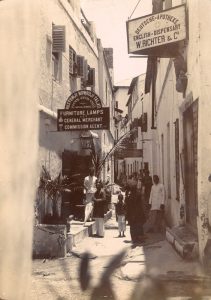
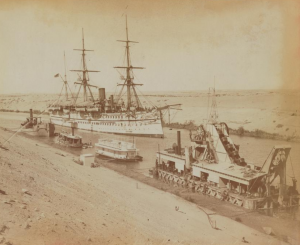
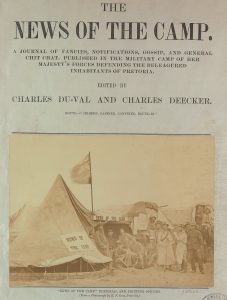
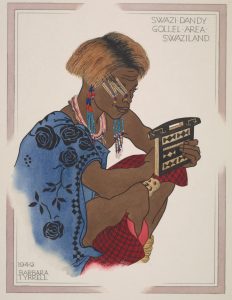
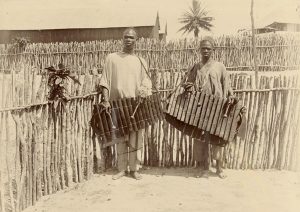
I am a doctoral researcher in African politics at Australia’s university of newcastle. I am currently researching the topic on the mitigation of electoral violence and the resolution of electoral conflict in Africa, with special reference to Ghana, Nigeria and Kenya. I will be much pleased to gain access to this rich historical documents that underpins the dynamics of my study. Thank you.
Kid regards
Very many thanks for the encouraging comment. We may have sources relevant to your research among our later pamphlet collection. I’ll be in touch via email. John